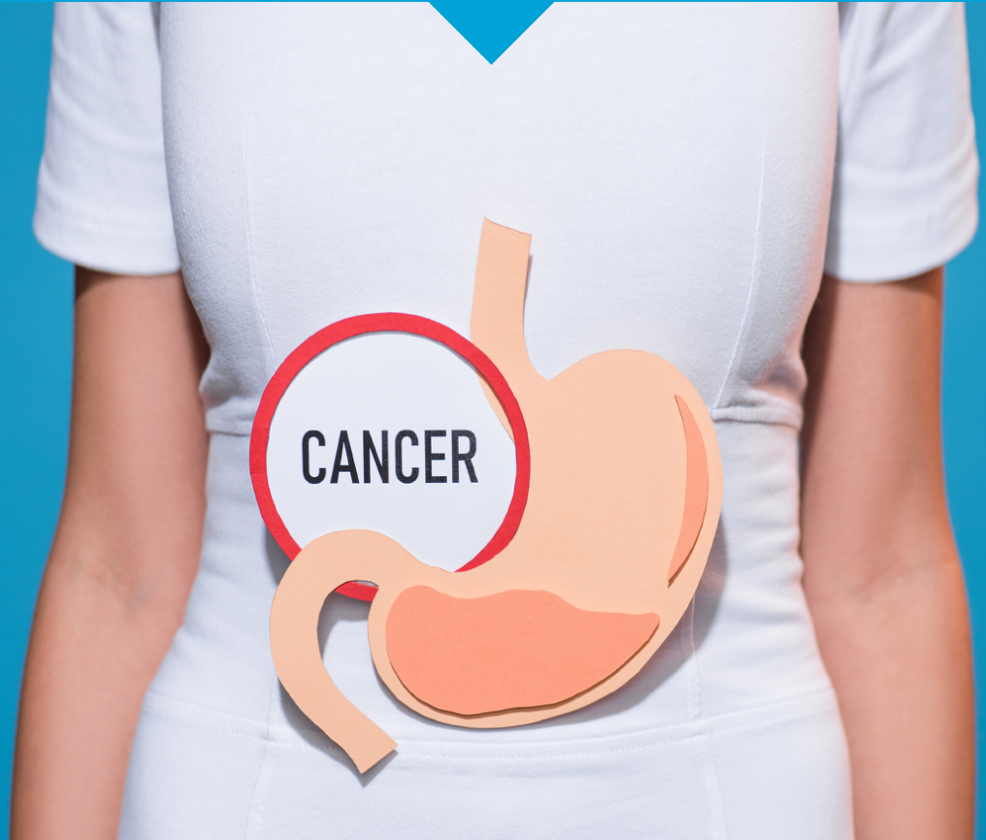
Stomach cancer, also known as gastric cancer, is the malignant over-proliferation of cells lining the stomach. Stomach cancer starts in the mucosa and spreads throughout the outer layers of the stomach as it grows. It is the 7th most common cancer among men and the 9th most common among women in Singapore. And it contributes to over 300 cancer-related deaths annually.
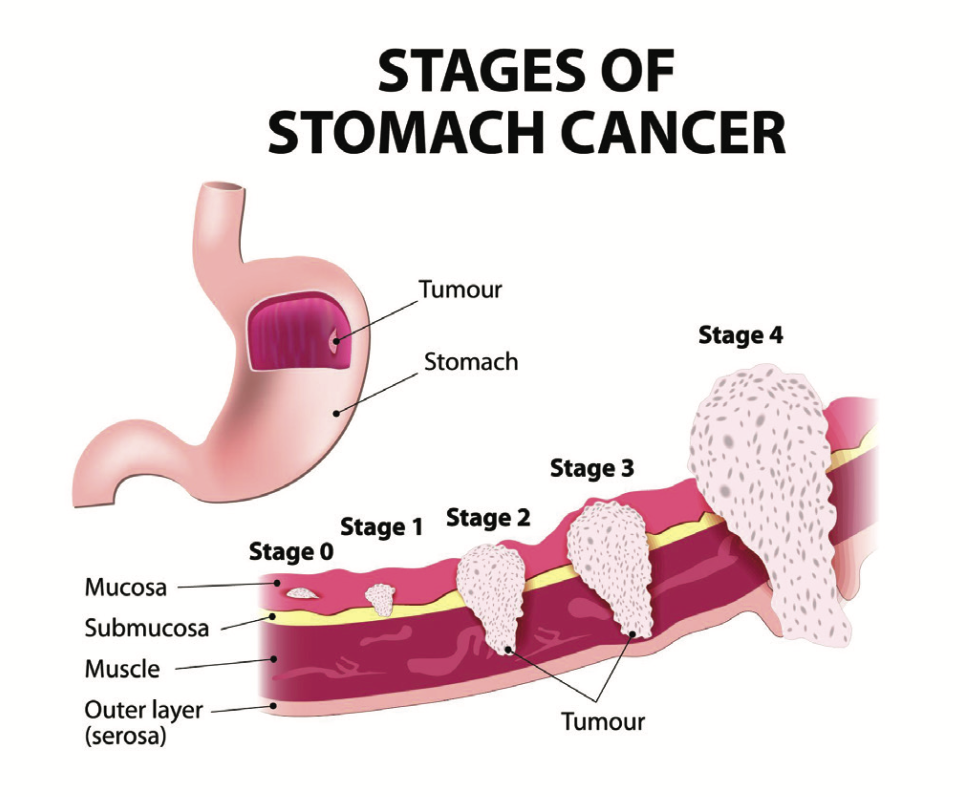
FOOD POISONING OR STOMACH CANCER?
Symptoms for stomach cancer are often similar to that of a stomach virus or an ulcer.
They include:
- Unexplained weight loss
- Nausea and vomiting, especially after eating
- Pain or discomfort in the abdomen
- Loss of appetite
- Indigestion and heartburn
It is important to note that stomach cancer usually goes undetected because there are often no symptoms in the early stages. Conversely, stomach cancer with these manifesting symptoms may indicate that the disease is already in its later stages.
In fact, 70% of stomach cancer patients do not survive more than five years because of a late diagnosis. This makes a blood test for early detection of stomach cancer very helpful and important.
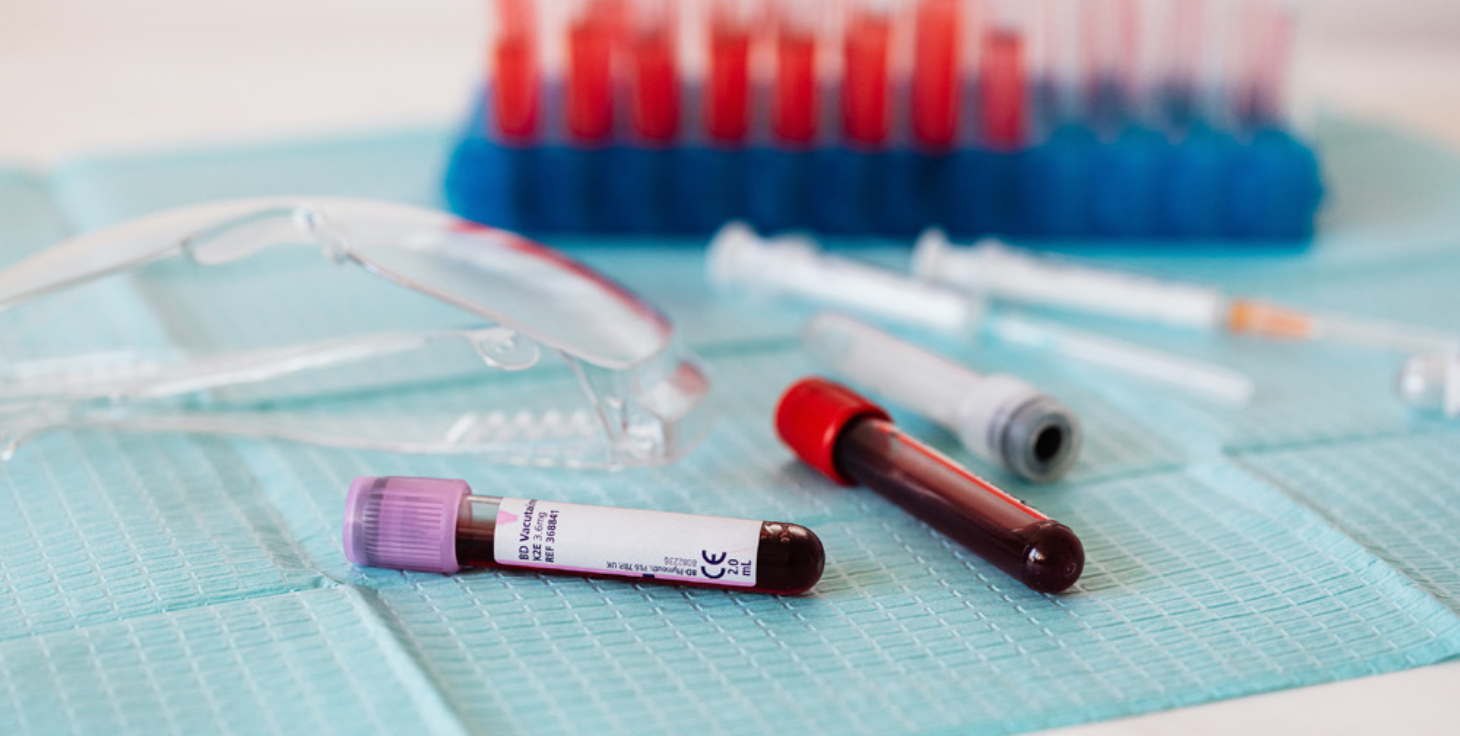
NEW BLOOD TEST WITH HIGHER ACCURACY GASTRO
Clear is a molecular blood test for the early detection of stomach cancer. It is a quick and painless way of assessing stomach cancer risk, which makes it a useful option for patients who are not keen on gastroscopic screening.
This blood test measures microRNA (mRNA) biomarkers, which are present in high levels in stomach cancer patients, including those still in the early stages. MicroRNA refers to a family of molecules that control gene expression, or how cells control the types and amounts of protein they synthesise. In cancer cells, mRNA genes can be damaged by mutations.
GASTROClear has a higher detection rate than traditional cancer markers. It has close to 90% sensitivity. In recent clinical trials, the test detected 87.5% of stage I and 89.5% of stage I stomach cancers. Furthermore, studies have shown that GASTROClear is 20% more accurate than other blood- based biomarker tests for stomach cancer.
LOW-RISK RESULT = NO STOMACH CANCER?
It should be emphasised that a low-risk result does not equate to zero possibility of stomach cancer. It simply means that the current risk of stomach cancer is low compared to most other people. It is also important to note that GASTROClear is not a freestanding diagnostic test for stomach cancer. A comprehensive clinical diagnosis will still require a gastroscopy and laboratory examination.
Conversely, a high-risk result does not reflect stomach cancer as well. Further diagnostic tests will still be needed.
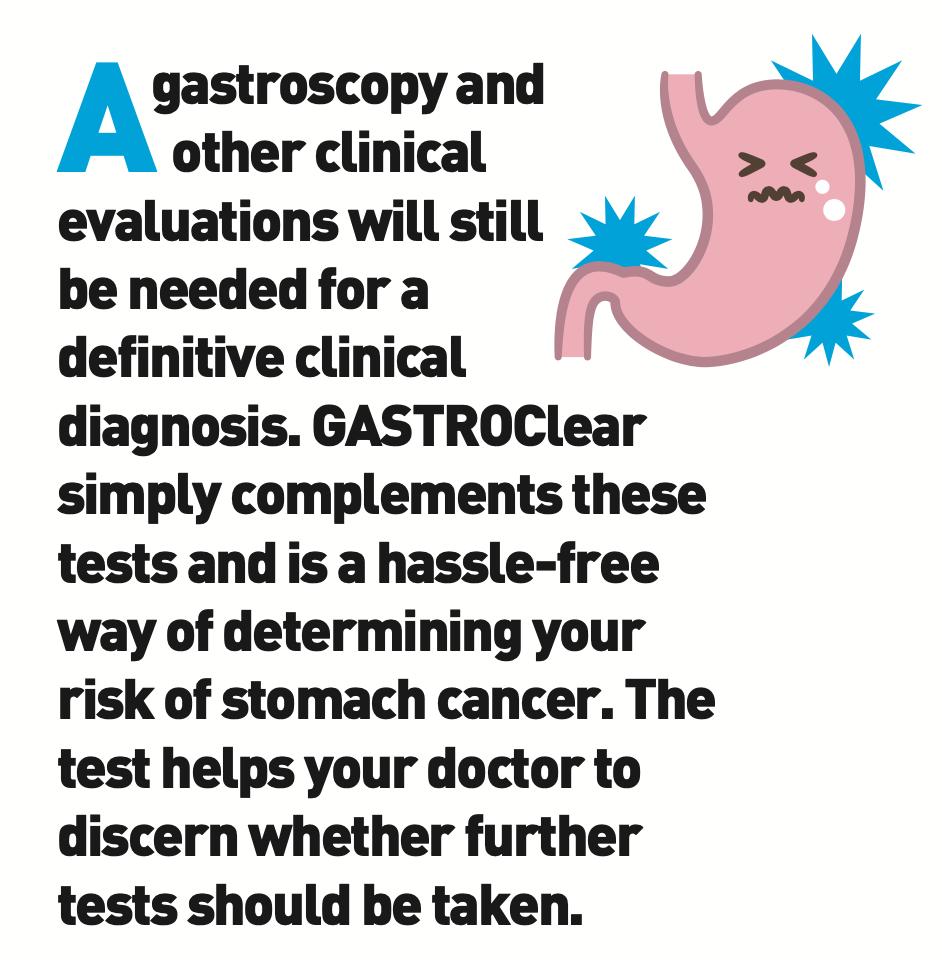
HOW DOES GASTROClear WORK?
This blood test detects cancer-associated mRNA biomarkers to help assess one’s risk of stomach cancer. The test leads to a risk score, which helps your gastroenterologist discern whether the possible presence of stomach cancer should be followed up with other clinical evaluations, such as a gastroscopy.
The risk is classified into the following categories:
- Low Risk (0 to <40) – The patient is recommended to repeat the blood test after a year.
- Immediate Risk (40 – 50) – The patient is recommended torepeat the blood test at an interval. The gastroenterologist may recommend a gastroscopy, depending on the current condition of the patient’s health and other risk factors.
- High Risk (>50 to 100) – A gastroscopy and other diagnostic tests will be recommended.
GASTROClear detects all stages of stomach cancer, with up to 86% sensitivity and up to 89% specificity in an asymptomatic average-risk population.
GASTROSCOPY AND OTHER CLINICAL EVALUATIONS
A gastroscopy and other clinical evaluations will still be needed for a definitive clinical diagnosis. GASTROClear simply complements these tests and is a hassle-free way of determining your risk of stomach cancer. The test helps your doctor to discern whether further tests should be taken.
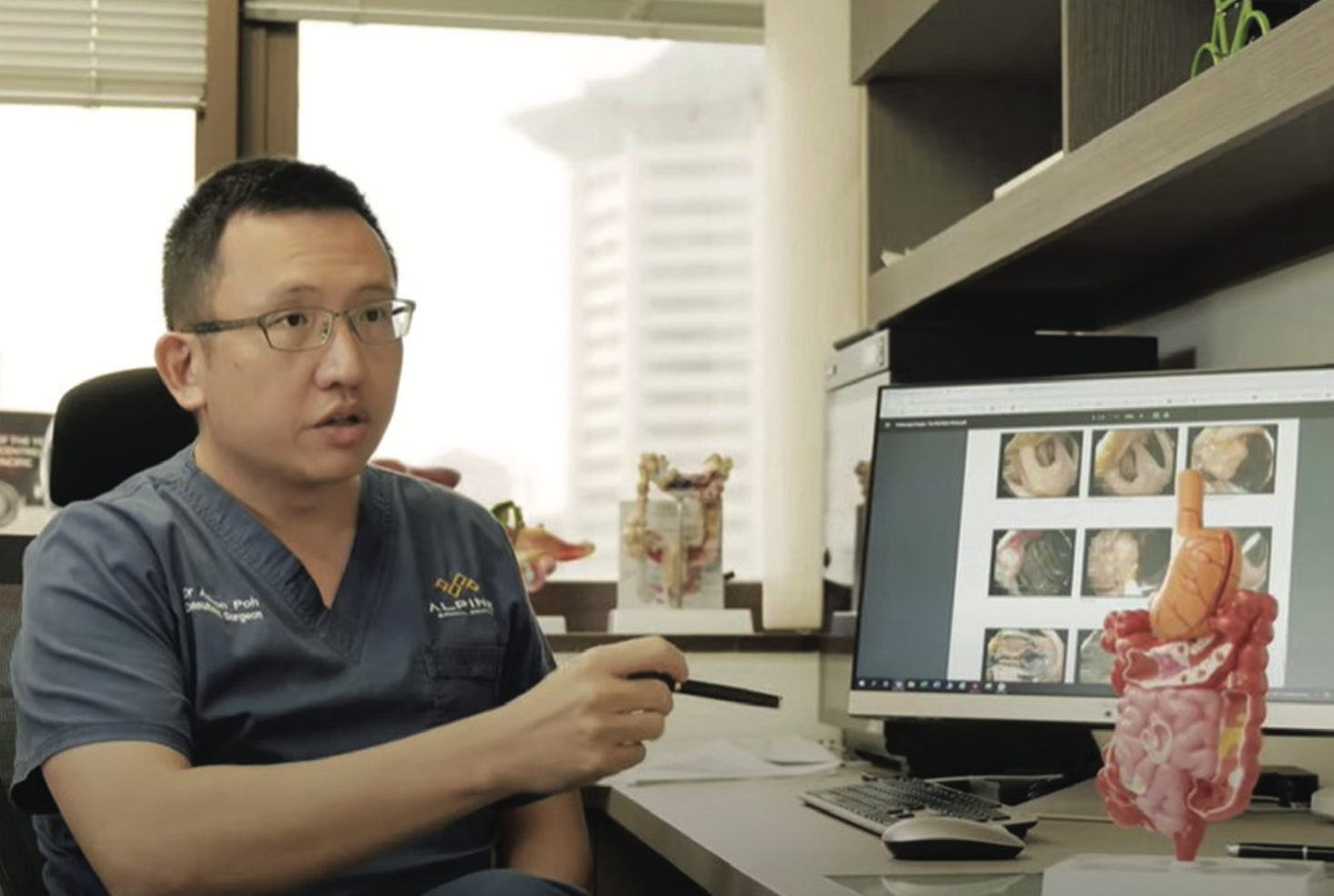
Dr Aaron Poh, Medical Director, Alpine Surgical Practice
TARGET GROUP
Ideally, this test is recommended for those who are above the age of 40 or who have the following risk factors:
- Family history of stomach cancer
- A history of stomach lymphoma or stomach polyps
- A history of H.pylori infection
- Medical history of gastritis
- A diet low in fibre
- A diet high in processed foods i.e., processed meat, pickled food, cured meats, etc.
- Cigarette smoking
- High intake of alcohol
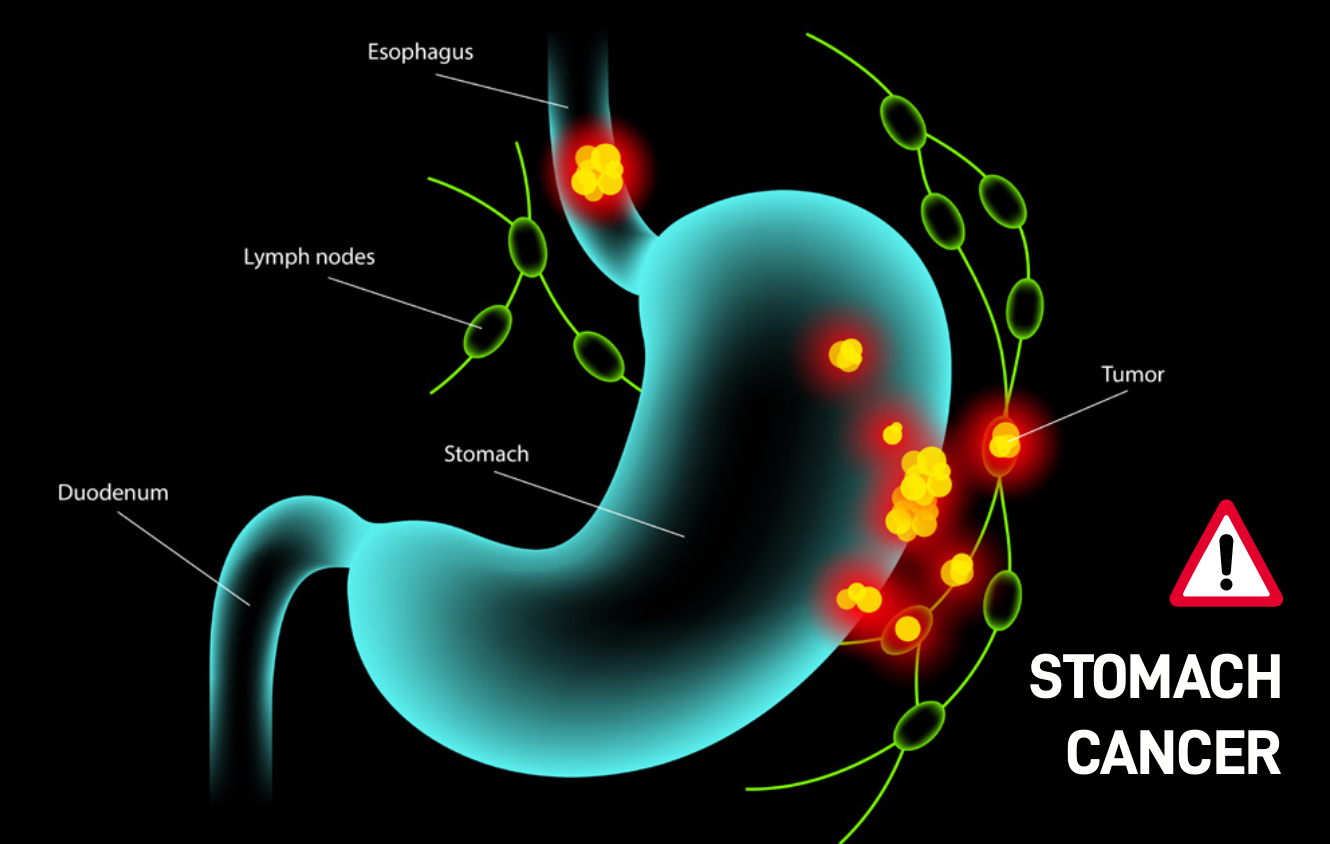
SUMMARY
Stomach cancer is the second leading cause of death in the world, with East Asian countries accounting for half of the world’s stomach cancer incidences.
Thankfully, stomach cancer can be cured in its early stages. This makes early detection crucial. If you are aged 40 and above or have the aforementioned risk factors, please consult a gastroenterologist to discuss the possibility of screening for stomach cancer. PRIME

Dr. Aaron Poh
Medical Director, Alpine Surgical Practice
MBBS (NUS, Singapore)
Facebook: /alpinesurgical.sg
Instagram: /alpinesurgical.sg
Dr Aaron Poh is a General Surgery specialist with dual subspecialities in Colorectal Surgery and Trauma Surgery. He is currently the Medical Surgery at Alpine Surgical Practice. Dr Poh performs a range of endoscopic and surgical procedures. These endoscopic procedures include gastroscopy and colonoscopy, with an emphasis on advanced procedures such as complex polyp removal with Endoscopic Mucosal Resection (EMR) and ESD (Endoscopic Submucosal Dissection). In addition, he also performs Colonic Stenting, which is particularly advantageous in helping patients with obstructed colon cancers avoid having a permanent stoma. Surgical procedures are largely performed laparoscopically and include colon cancer surgery, hernia repair surgery and gallbladder removal, among others.

Call: +65 65898929
Whatsapp +65 8875 0080
Email: info@alpinesurgical.sg
Website: https://alpinesurgical.sg











